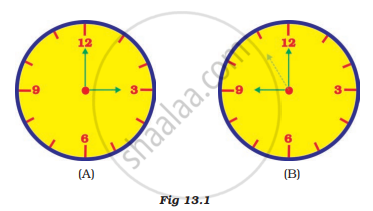Advertisements
Advertisements
Question
Explain the two ways by which the pitch of the sound generated by a stretched string can be changed.
Solution
- A string vibrates at a specific fundamental frequency. It is possible to make pitches with multiple frequencies with the same string.
- The length and diameter of the string determine its frequency.
- Changing the length of a string causes it to vibrate at a different frequency. Shorter strings have a greater frequency, which leads to a higher pitch.
- When a musician presses her finger against a string, she reduces its length. The more fingers she puts to the string, the shorter it becomes, and the higher the pitch.
Thick strings with a big diameter vibrate slower and at a lower frequency than thin ones.
RELATED QUESTIONS
Define the terms : time period as related to a simple pendulum.
How do you measure the time period of a given pendulum? Why do you note the time for more than one oscillation?
Two simple pendulums A and B have lengths 1.0 m and 4.0 m, respectively, at a certain place. Which pendulum will make more oscillations in 1 min? Explain your answer.
The frequency of sound is measured in ______.
Two clocks A and B are shown in Figure 13.1. Clock A has an hour and a minute hand, whereas clock B has an hour hand, a minute hand as well as a second hand. Which of the following statement is correct for these clocks?

Give scientific reason.
In earlier times, people used to listen for the arrival of a distant train by putting their ear to the rail.
Give scientific reason.
In earlier times, people used to listen for the arrival of a distant train by putting their ear to the rail.
Give scientific reasons.
In earlier times, people used to listen for the arrival of a distant train by putting their ear to the rail.
Give scientific reason.
In earlier times, people used to listen for the arrival of a distant train by putting their ear to the rail.
You can perform an interesting activity when you visit a park to ride a swing. You will require a watch. Make the swing oscillate without anyone sitting on it. Find its time period in the same way as you did for the pendulum. Make sure that there are no jerks in the motion of the swing. Ask one of your friends to sit on the swing. Push it once and let it swing naturally. Again measure its time period. Repeat the activity with different persons sitting on the swing. Compare the time period of the swing measured in different cases. What conclusions do you draw from this activity?
